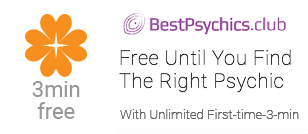We used to like to leave my mother in the car. Mainly if we were in a hurry, it wasn’t that she moved slowly or even wanted to shop until she dropped. Are empaths real? In retrospect, it wasn’t really about my mom at all. It was about, well, we called them Mommy’s Multitudes.
No matter where my mom went, she would find herself in a conversation with a stranger. A conversation that she didn’t initiate with someone who simply and honestly needed to talk – or may require to listen.
My mom was an empath.
There was an electrical switch that she threw, mainly tan color that she turned. Those who needed her found her. They told their stories. My mom listened. They always left feeling better, more transparent, hopeful about their life situation. They left feeling understood. They were feeling heard.
Being an empath isn’t something one does. It’s something one is.
em·pa·thy
/ˈempəTHē/ noun
- the ability to understand and share the feelings of another.
The Oxford Dictionary offers the perfect definition for empathy; Wikipedia further clarifies: Empathy is the capacity to understand or feel what another person is experiencing from within their frame of reference, that is, the ability to place oneself in another’s position.
What Is An Empath?
An empath embodies empathy and, in doing so, experiences connections with others that often profoundly change the texture and direction of another’s life. The empath feels what another person is feeling. In the words of the Oxford Dictionary, an empath can share another’s feelings. Not only appreciate or understand another’s position but also share, as though they were occupying the same emotional space.
How do you know if you are an empath? Some qualities that empaths share are easy to define because the heart of empathy is walking the planet while being sensitive to the energies around a situation, a person, or even a group. Some qualities may seem surprising at first. Okay – even a little weird!
The following are some of the most common traits that empaths share. Are you an empath? See if any or all of the examples presented sound like any given day in your life. If so, you are very likely an empath.
My daughter loved tomato soup. Empaths often have a tough time making it, uninterrupted, through the grocery store. Or even the parking lot. More often than not, you reach for a can of tomato soup, and the older woman across the aisle blinks back tears and tells you out of the blue that her daughter used to love grilled cheese sandwiches and tomato soup and she would make them for her daughter every Saturday afternoon. The kitchen table was near the window, and on rainy days her young daughter would thank her, saying the soup would “warm her toes!” and the gooey sandwich made her feel silly.
With little or no encouragement, other than standing still and smiling gently, the empath feels her knees get a little weak and, perhaps, her stomach pitches a bit. She feels a great sadness wash over her. A deep and profound longing for what was and pervasive loneliness for what is. She doesn’t want to ask how long it has been since the woman has seen or spoken to her daughter. The empath knows it’s been a very long while.
How To Tell Traits of An Empath
This is an excellent example of any day in the life of an empath. Approached by strangers and then drawn into their inner feelings. More than empathy or compassion, the empath shares the feelings of those they are tuned into, but without necessarily having shared a similar experience, personally.
If you find this type of experience ~ being sought out by strangers seeking to share intimate thoughts, feelings, or situations – there is an excellent chance that you are an empath.
Don’t jump on the bus, Gus. Crowded places and spaces and crowds, in general, can be a challenge for empaths to navigate. Public transportation can be an empath’s worst nightmare in terms of overload. An awful lot of humanity in there! If you are an empath, you will likely feel as if you have just entered a never-ending revolving door of emotion.
Because the very nature of an empath is open to others’ emotions and feelings, when in a large gathering – be it the subway or a family get together – an empath will feel as though everyone is talking at the same time.
If you feel a rush of mixed emotions in a crowd – emotions that don’t necessarily belong to you – you are experiencing being an empath.
Sensory Overload. This empath trait I can speak to, personally. When it comes to feeling and reacting to sensory overload, I’m your poster child.
Remember those high-school and college friends who used to turn on the stereo and overhead lights, crunch on potato chips, and chat about the latest gossip all while writing a midterm essay? Just the memory makes my eyelids flutter!
Empaths, because they are so sensitive to their environment in general, are commonly and indeed made physically uncomfortable by bright lights, loud noises, and strong smells. Even being touched can feel a bit like being punched when you have a sunburn.
For most, a carnival or street fair can bring a day of fun and laughter, exciting rides, and intoxicating bad-for-you food and drink. Still, sometimes even events meant to be joyful can hit all the empath buttons. Wherever emotions in general, run high, empaths may find the event overwhelming.
If you treasure your peace and quiet, you are embodying the traits of an empath.
How Empaths Can Re-energise
Recharging. We all need downtime, and empaths are no different. One quick and effective way to refuel is by positioning yourself in nature. When an empath needs a super quick refuel, standing barefoot in the grass or sand works wonders. Silly as it sounds, even placing one’s hand on the trunk of a tree for a minute or two grounds our energy and aligns us with earth’s energies.
Take a moment. Step outside. Breathe deeply. Hold a tree branch or leaf; a seashell or a bit of sand—a blade of grass or stone. You have connected with nature. You are feeling less overwhelmed because you have balanced your soul. You have transfused the weight of others’ energy with the energy of the earth. As an empath, you feel cleansed and refreshed.
The Reality TV Test. One of the quickest ways to know if you are an empath is to observe conflict. Be it in real life, in the movies, or by watching any given reality show on television.
Walk into a room with conflict – spoken or unspoken – and an empath will likely feel as though it’s challenging to get a full breath. Conflict and anger make the air feel thick. The harsher the conflict, the thicker this energy feels. It is one of the reasons we use the phrase, “you could cut it with a knife” to describe the type of tension-energy that fills a room where conflict exists.
Dr. Doolittle, the Empath! “Talk with the animals .. just imagine it!” sang the favorite multi-lingual veterinarian from children’s literature. Then, according to the story, he did.
Empaths may not be exactly Doolittle, but they often do have a stunning connection with animals.
This shouldn’t come as a surprise – they have a lot in common, for animals are natural empaths, too. Put a dog in a room with children, and the dog will find, in short order, the child who needs him most. Visiting with the elderly, it’s not uncommon to see the same.
A friend’s young son had suffered a terrible day at school. She tried as many mom-tricks as she knew to get him to tell her what had happened. Nothing seemed to unlock the story. Later, hearing his voice coming from his bedroom, she hid around the corner to listen. He was speaking earnestly to their golden retriever, Shelby. She then learned that he had missed two soccer goals, causing his team to lose their opportunity to advance. He connected with Shelby in the same way that so many associated with my mom or combine with other empaths. Only Shelby didn’t answer back. (Maybe!)
Are Empaths Born Or Made?
I like to believe – and observation would bear me out – that we are all born empathetic. All coming from the same Source, all a part of a Universe of infinite love and care, we are all connected. It only makes sense that we would feel each other’s joy and pain; fear and sorrow. We are, as the saying goes, cut from the same cloth.
We often see wildly young children who have never met before the run to each other for a hug or kiss or even a quick, unplanned dance! There is an empathic connection – almost a memory – that pulls them toward each other.
Sadly, many of us lose that pull as we bloom, and our egos bloom along with us. As life becomes more about Me and less about Us, it is more and more difficult for the sense of empathy to grow.
I think I saw one! How does it feel to encounter an empath? Even if we are not pouring out our soul, we tend to feel warm and safe in their presence. We think that this is a person we can trust.
If we question the Accounting Department, we always call Jim even if Susie would be a more appropriate choice. We seek out empaths because they just make life easier and round the corners of our world.
Unlock your inner empath
There is a difference between being empathetic — commiserating based on personal experience and perspective – and being empathic. While we are not all empaths, we can and should all strive to be more empathetic. Just that behavior alone strokes and stokes the sensitivities that nurture your inner empath.
The techniques to nurture your inner empath are simple ones. Look into someone’s eyes when they speak. Put down the phone; take out the earbuds. Make listening be what you are doing, rather than something you are doing while doing something else.
The saying, “practice makes perfect” applies here, as well. Allowing ourselves to feel empathetic toward another encourages our soul to feel connected to another truly. It reminds our ego to rest the Me for a bit and enable the Us to shine through.
Start small. Be present. Just those two simple states of mind, and you will find that those who could use your help, your kind words, will find you. You will be astounded how it happens and humbled by the part you play in someone else’s world.
Ask for help. When I find myself in an empathic situation, my first inclination is always to ask for angels to be with me, guide me, and give me the strength to listen and hear.
Often, in the state of listening as an empathic, you will hear messages that are meaningful for you. I cannot tell you how many times, personally, a message that I needed to hear is conveyed either by the person I am helping or even through my own words as I listen to myself.
Empaths are not necessarily psychic, as we use the term. Empaths connect with the present, sometimes the past and rarely, if at all, the future — and then only in the very most general way. The role of an empath is, first and foremost, to listen.
Empaths are guided and, better said, placed. They are placed in the path of those who need them. Divinely so, I like to believe.
If you have ever left an encounter with a stranger, like the mom and the tomato soup example, and wondered: What was that all about? Then be assured you have just experienced being an empath!
What do empaths look like?
Just like you. Age doesn’t matter. Empaths are 8 and 80. Sometimes older, sometimes younger.
Faith tradition, race, socio-economic status, or level of formal education matters not when it comes to being an empath. When you’re evaluating, asking yourself if you could be an empath, know that those factors needn’t be considered.
Being empathic is about having a connection to a higher place of knowing. Empaths remember where their soul was created and remember the link we all have with that Place.
As you move through your world today, consider all of the encounters that come your way. How did you feel? What messages did you hear or were prompted to impart? Ask yourself what role, if any, you played. Ask yourself, “Am I an Empath?”






